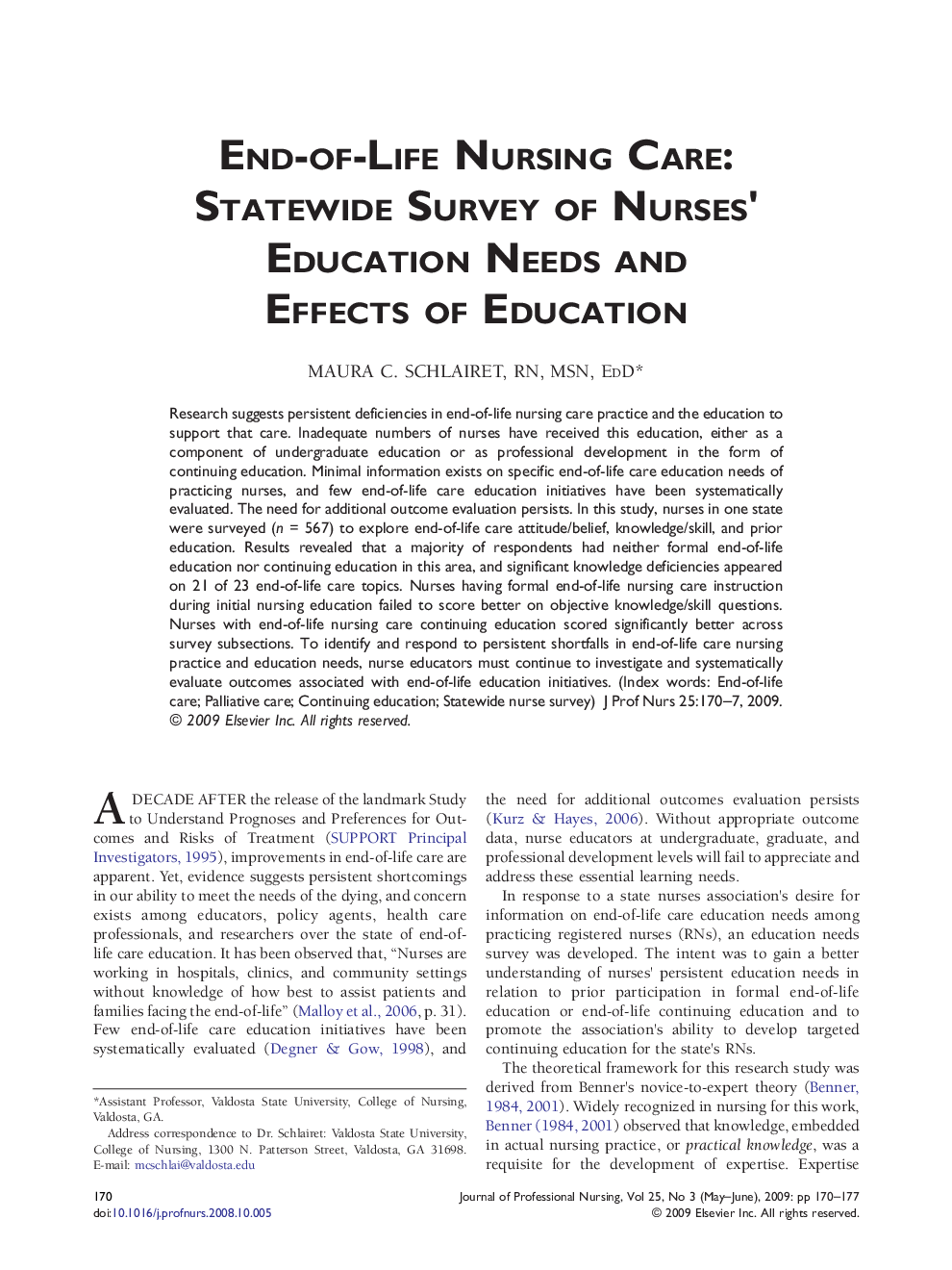| Article ID | Journal | Published Year | Pages | File Type |
|---|---|---|---|---|
| 2668766 | Journal of Professional Nursing | 2009 | 8 Pages |
Research suggests persistent deficiencies in end-of-life nursing care practice and the education to support that care. Inadequate numbers of nurses have received this education, either as a component of undergraduate education or as professional development in the form of continuing education. Minimal information exists on specific end-of-life care education needs of practicing nurses, and few end-of-life care education initiatives have been systematically evaluated. The need for additional outcome evaluation persists. In this study, nurses in one state were surveyed (n = 567) to explore end-of-life care attitude/belief, knowledge/skill, and prior education. Results revealed that a majority of respondents had neither formal end-of-life education nor continuing education in this area, and significant knowledge deficiencies appeared on 21 of 23 end-of-life care topics. Nurses having formal end-of-life nursing care instruction during initial nursing education failed to score better on objective knowledge/skill questions. Nurses with end-of-life nursing care continuing education scored significantly better across survey subsections. To identify and respond to persistent shortfalls in end-of-life care nursing practice and education needs, nurse educators must continue to investigate and systematically evaluate outcomes associated with end-of-life education initiatives.
